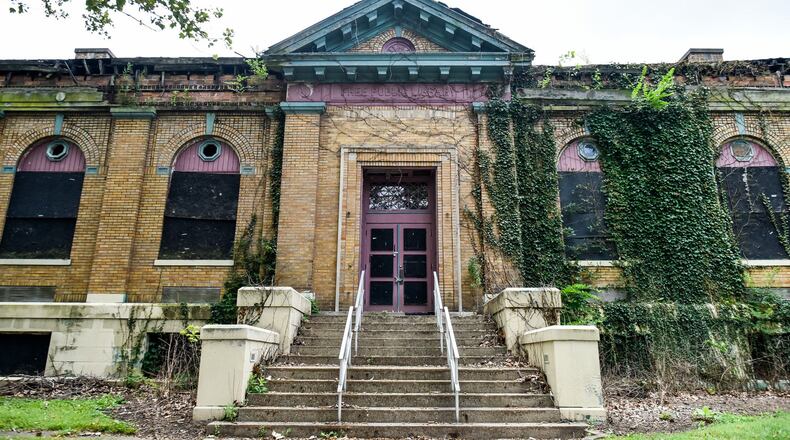The commission based its recommendation on the site meeting all of the review criteria outlined by the Middletown Development Code, according to Ashley Combs, city planning director.
The request for historic designation was made by property owner Dan Mayzum, who purchased the 106-year-old building last year. The former library had been neglected for more than 15 years before the preservation architect from Glendale purchased the three parcels.
Mayzum, 50, owner of Architecture Renewal, purchased the building and land last June for $5,000 — $90,000 less than it was appraised in 2017 by the Butler County Auditor’s Office. Mayzum has estimated the cost of renovations of the library at about $4 million.
Mayzum envisions four businesses operating inside the 17,000-square-foot building. He’d like to open a cooperative brewing company, a restaurant and 120-seat reception hall and a business incubator.
“Once it receives the designation, then we’re eligible for the guaranteed 20 percent in federal historic tax credits and the up to 25 percent in the competitive state historic tax credits,” Mayzum said.
He said after getting final written approval from the state, the first phase will be stabilizing the structure exterior with a new roof, restoring and refurbishing 181 windows, replacing doors and a new concrete bond beam to support the roof in the 1911 building and the 1938 addition.
The second phase would be the new interior finishes and two elevators, one for guests, the other for the kitchen, he said.
Mayzum and his partner Dan Barton are working with the city to redevelop and revitalize the adjacent Oakland neighborhood.
The Middletown Public Library was located at the building from 1911 to 1987 before the new library on Broad Street was built. It has also be the home of Serenity House and Angel Place shelters and had five other private owners before Mayzum’s company 1865 GEBA LLC purchased the building last year. The library was expanded three times in 1938, 1959 and 1969.
According to the commission, the library is historically significant as it met an important need in Middletown for a more robust public educational infrastructure.
“This educational asset development was part of several community upgrades required by local industrialists for their increased investment in Middletown, versus potentially locating to other regional sites. This industrialist group, led by Armco Steel founder George Verity, spearheaded the drive in accepting the Carnegie Corporation grant offer and assembling the required local support commitments,” according to the commission’s report.
About the Author

